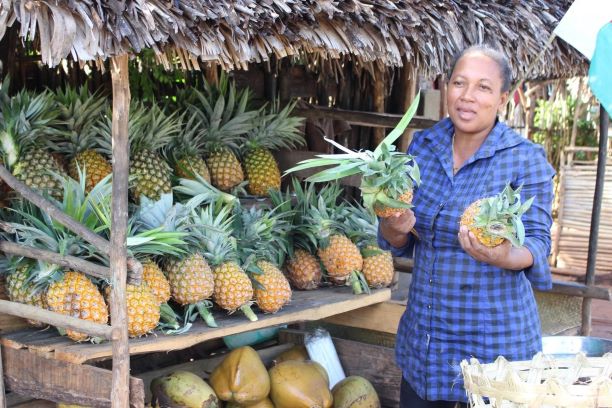Rural development projects financed and supported by the International Fund for Agricultural Development (IFAD) have helped to reduce rural poverty and increase rural entrepreneurship in Madagascar, according to a new report presented today.
The report, prepared by IFAD’s Independent Office of Evaluation (IOE), reviews the joint work of IFAD and the Government of Madagascar over the past seven years (2013-2019), covering six projects with a total project cost of US$510 million, of which 59 per cent was financed by IFAD. The evaluation report highlights achievements as well as areas for further improvement.
IFAD- supported projects aim to raise the incomes and improve livelihoods, food security and living conditions of the world’s poorest people, who live in rural areas of developing countries. In the years after the 2009-2012 political crisis, IFAD-supported projects helped rural poor by providing them with the abilities and skills to improve their productivity and better capitalize on economic opportunities.
Several projects introduced innovations into Madagascar, leading to positive results. For instance, IFAD was successful in integrating a large number of microenterprises and small businesses into high-value sectors by pairing farmers’ organizations with market operators, which improved farmers’ access to the markets. According to the report, the creation of nearly 400 of these pairs attracted over US$5.4 million in private sector investments.
“We are quite proud of our gains in Madagascar in terms of rural productivity, incomes and entrepreneurship. Linking farmers with market operators was key for improving economic opportunities in rural areas”, said Sara Mbago-Bhunu, Regional Director of IFAD’s East and Southern Africa Division (ESA).
IFAD played a key role in improving access of rural entrepreneurs to productive assets, support services and financial services. The report states that IFAD helped create networks of service providers, and collaboration and support platforms, thus contributing to the development of rural entrepreneurship.
Capacity development and training for young farmers helped them set up and develop their own businesses. “Approximately 70,000 people benefited from training and outreach activities, which are essential for the development of our beneficiaries’ capacities and the dissemination of improved production techniques”, said Fabrizio Felloni, Interim Officer-in-Charge, IOE.
IFAD’s work in the country is not over, however, and he went on to describe some of the areas for future work. “The report shows that there is a need to enhance the efficiency and sustainability of the operations, by better engaging key actors such as microfinance institutions, better defining the geographical reach of operations and further strengthening capacity development and skills,” Felloni said. “Additional efforts are also needed to integrate the most vulnerable into the country strategy and programme. The evaluation recommends to fine tune targeting, providing more subsidies for income-generating activities and credit to help the most vulnerable people participate fully in these activities.”
According to the evaluation report, the management of natural resources and adaptation to climate change impacts needs to become a key objective in IFAD’s next country strategy for Madagascar. IFAD is looking at how it can improve work in this area in order to ensure sustainability and improve the livelihoods of the rural poor.








